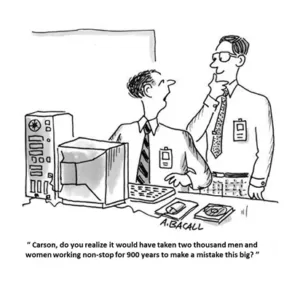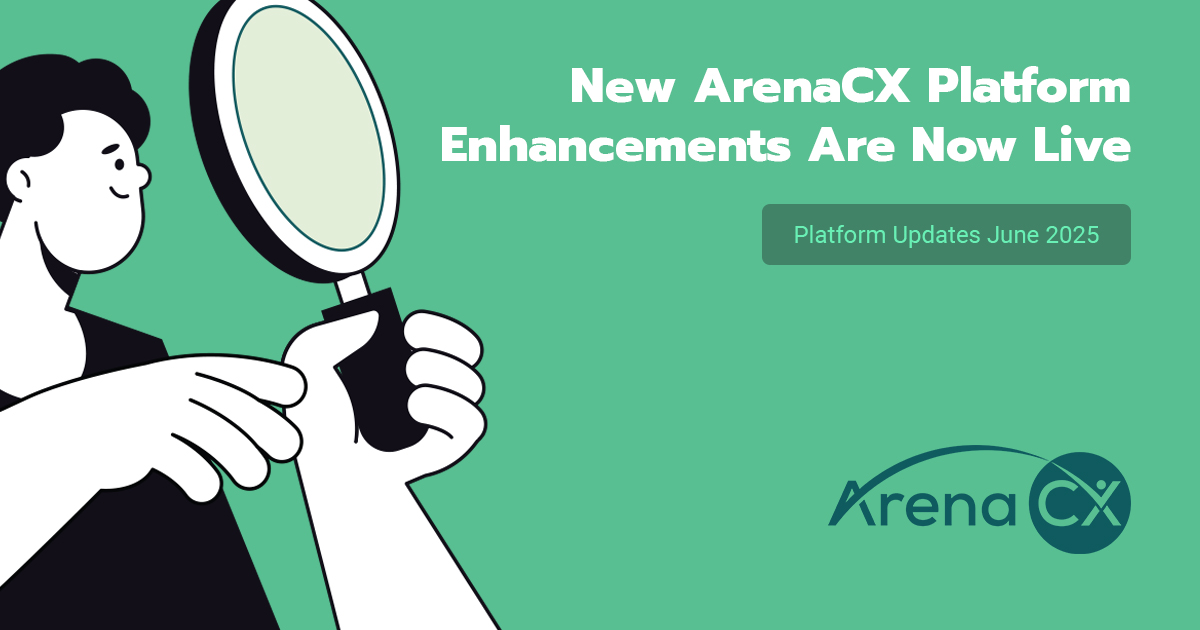This is the eighth post in a series about improving human-bot relations in customer service. See my page to get caught up.
When a challenge is complex, and we are charged with engineering and executing a solution, a very human response is to reduce complexity by minimizing the number of decision-makers. Robin Williams (rest his soul) played to this intuition when he said, “a platypus is a duck designed by committee.” Others have voiced this idea with more gravitas in serious publications.[1]
Nowhere is the pairing of a complex problem with a centralized solution so pronounced as it is in economics. Because the forces driving economic outcomes are so interminably complex, and because the ranks of decision-makers in economic transactions include literally everyone, it is no surprise that some thinkers gravitate towards the levers of a centralized command and control economy.[2] After all, they can reason, “We’ve studied this more than the average person, we’re smart and have good intentions, why shouldn’t we make the decisions?”
Here’s the rub. This approach places decision-making in the hands of individuals who are often multiple steps removed from the transactions they are regulating, and who typically have no stake in or accountability for the outcomes they engineer. Thomas Sowell explains, “Often what they propose amounts to third-party decision-making by people who pay no cost for being wrong — surely one of the least promising ways of reaching decisions satisfactory to the those who must live with the consequences.”[3] This is a consequence of where decisions are made in the system, not how smart or well-intentioned are the central planners.
In customer service, we are tasked with framing the conditions that will engender success within a certain kind of economy; let’s call it our “case economy,” by which we mean the hundreds, thousands, or millions of individual transactions between our customers and agents. It is tempting to assume what our customers want — or should want; to substitute our Quality Assurance (QA) rubric for real, varied, and messy customer feedback; to map the ideal customer experience (CX) journey based on input from a small group which may not even include customers; and so on.
Again, this is not because we are control freaks. It is because understanding the living, breathing, pulsating dynamics of our actual case economy is, in practice, impossible. What other choice do we have?
There is an alternative. In economics, decentralized market economies significantly outperform command economies.[4] This is not controversial. Even staunch command economies, such as China, have recognized this and begun to introduce decentralized approaches.
In the IT world, data volume and complexity become far more manageable than what our human minds can handle. Software doesn’t suffer from these complexity and decision-maker problems. Feedback from widely distributed nodes and endpoints throughout a network can be used to make near-real time adjustments that improve local effectiveness and efficiency, while also balancing this with aggregate results.
Programs that optimize modern cell phone networks are a good example: the algorithms that manage a carrier’s network must treat call quality as a local experience while optimizing network capacity in the aggregate. This kind of stuff is happening all around us.

Adapted from The New Yorker
In customer service, we could do something similar. It would mean moving decision-making as close to the customer as possible and letting them decide whether the results are satisfactory. What if our systems automatically adjusted to positive and negative feedback from our customers — whether explicit in customer satisfaction (CSAT) surveys or implicit in their purchase or churn behavior? What if we could automatically do more of what “works” and less of what doesn’t, regardless of whether the adjustments met our preconceived notions? Our program would be framed less like a command economy and more like a market economy. It would behave more like a computer network than a traditional call center operation. If we could do this, we’d also be empowering and prioritizing our customers, which is what we all aspire to do.
Technology can unshackle us from an overwhelmingly complex case economy. So why don’t we see more decentralization? Although I stated above that we are not control freaks (and I still think we aren’t full freaks), a common secondary concern over decentralized decision-making is a loss of control: if computers are using customer data to make decisions, what’s left for management? Of course, with a little reflection, the answer is “plenty.” But, in fact, the concern over control seems overstated. I have observed that decentralizing power is, perhaps counter-intuitively, often the very best way to multiply it.
Up next: “Bots won’t make us better people, but they might make our people better”
[1] https://hbr.org/2016/10/centralized-decision-making-helps-kill-bad-products
[2] https://www.thebalance.com/command-economy-characteristics-pros-cons-and-examples-3305585
[3] https://www.amazon.com/Vision-Anointed-Self-Congratulation-Social-Policy/dp/046508995X
[4] https://smartasset.com/financial-advisor/free-market-economy
[5] https://www.nytimes.com/2017/04/04/education/edlife/teaching-students-computer-code.html
Related Articles
Want more? Here are some other blog posts, topics and articles you might be interested in.












